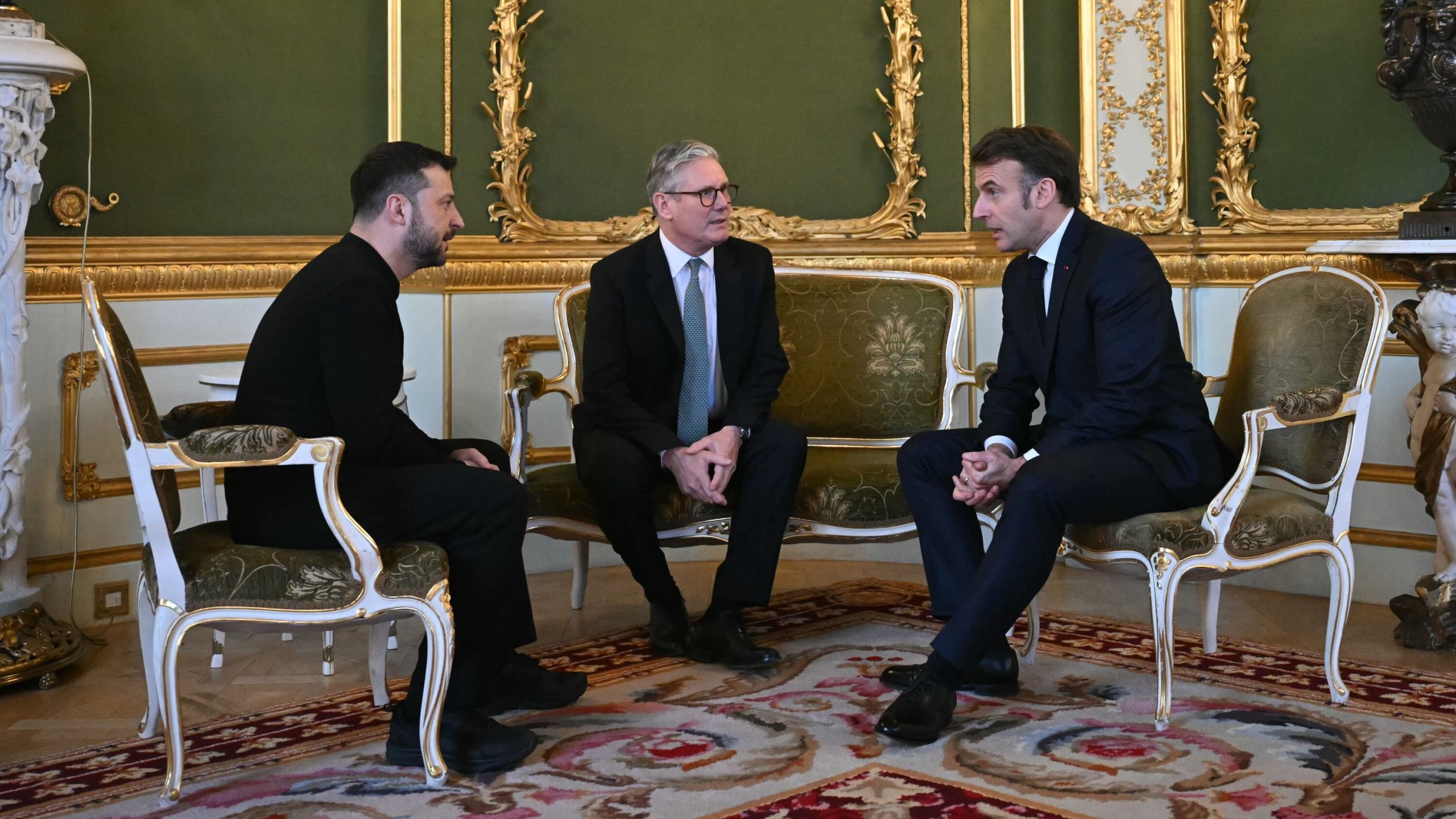UK Prime Minister Keir Starmer has put forward a framework for a potential peace agreement between Ukraine and Russia. The plan was discussed during a meeting with Ukrainian President Volodymyr Zelenskyy, French President Emmanuel Macron, and other European leaders.
Starmer stressed that European nations must take on a greater role in Ukraine’s security rather than relying solely on the United States. He stated that the UK is prepared to send ground troops and air force support to enforce the agreement, while also acknowledging that the plan would still depend heavily on U.S. backing.
Macron’s Ceasefire Proposal and Zelenskyy’s Ongoing Diplomatic Challenges with the U.S.
French President Emmanuel Macron proposed a 30-day suspension of attacks on Ukraine’s air, sea, and energy infrastructure. This temporary ceasefire would create an opportunity for negotiations aimed at reaching a broader peace deal. Macron’s comments indicate that European leaders are working on multiple approaches to de-escalate the conflict. His proposal aligns with Starmer’s call for Europe to take more responsibility in ensuring Ukraine’s stability and security.

Ukrainian President Volodymyr Zelenskyy has been navigating political tensions following a contentious meeting with former U.S. President Donald Trump and Vice President JD Vance. Despite the fallout, Zelenskyy remains open to economic agreements with the U.S., including a rare earth minerals deal.
However, U.S. Secretary of State Marco Rubio made it clear that security guarantees for Ukraine would only be considered after a peace deal is in place. In response, Zelenskyy reaffirmed that Ukraine’s best defense remains a strong and well-equipped military.
U.S. Political Divisions and Uncertainty Over Continued Support for Ukraine’s Leadership
The clash between Zelenskyy and Trump has sparked strong reactions from U.S. politicians, particularly among Republican leaders. Senator Lindsey Graham called for Zelenskyy to step down, suggesting that his leadership is becoming an obstacle to negotiations. Trump echoed a similar stance, stating that Zelenskyy could return for discussions when he is ready to make real progress toward peace. These remarks reflect a shift in certain U.S. political circles, with some questioning the future of American support for Ukraine.
The uncertainty surrounding Ukraine’s diplomatic relationships and the conditions for peace highlight the difficulties in reaching a lasting resolution to the conflict. While Starmer’s plan emphasizes greater European involvement, the lack of firm commitments from the U.S. raises doubts about its feasibility. Zelenskyy remains determined to uphold Ukraine’s sovereignty, but his leadership faces increasing scrutiny from both allies and critics. The coming months will be crucial in determining whether a peace deal can be reached and whether international support for Ukraine remains strong.


